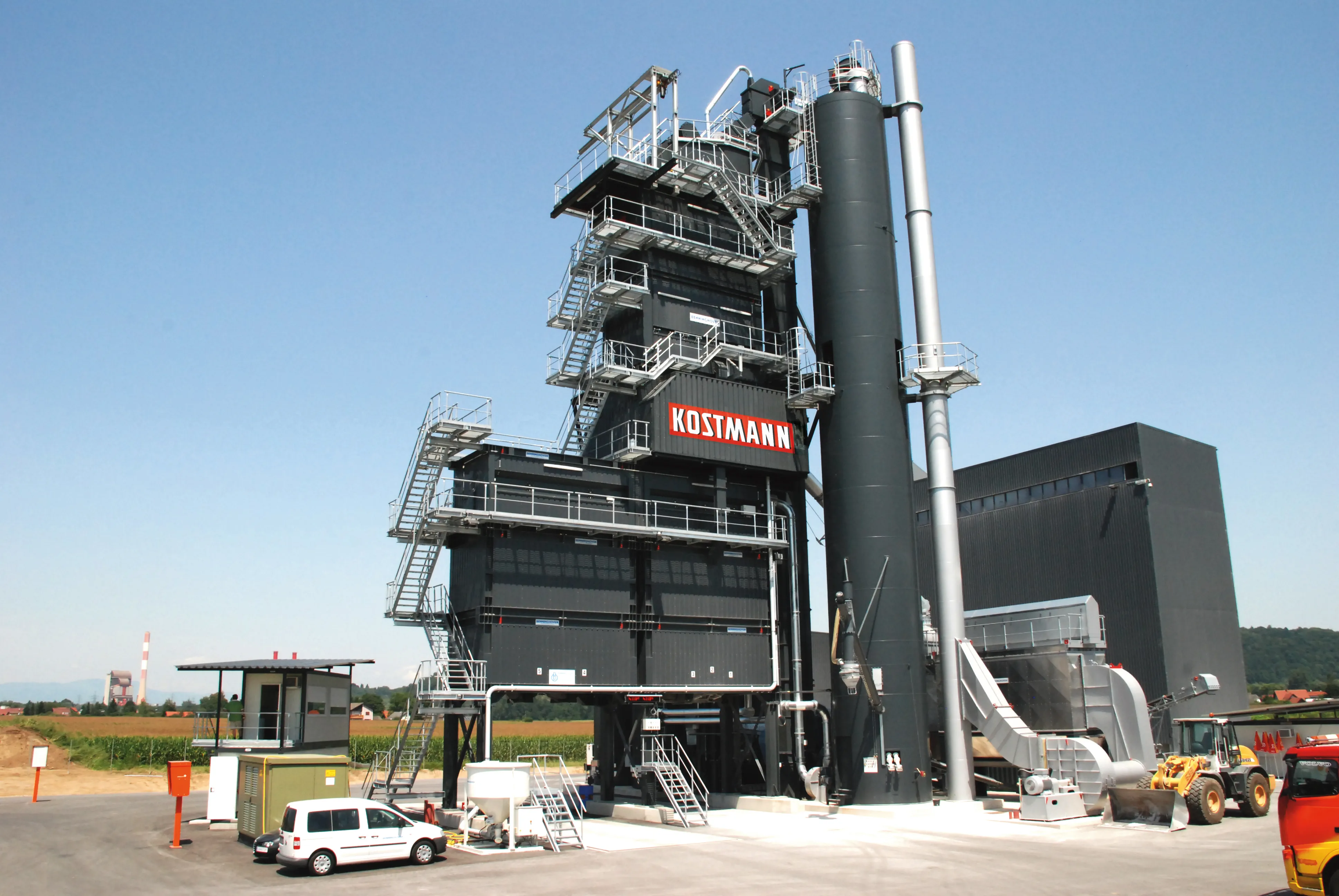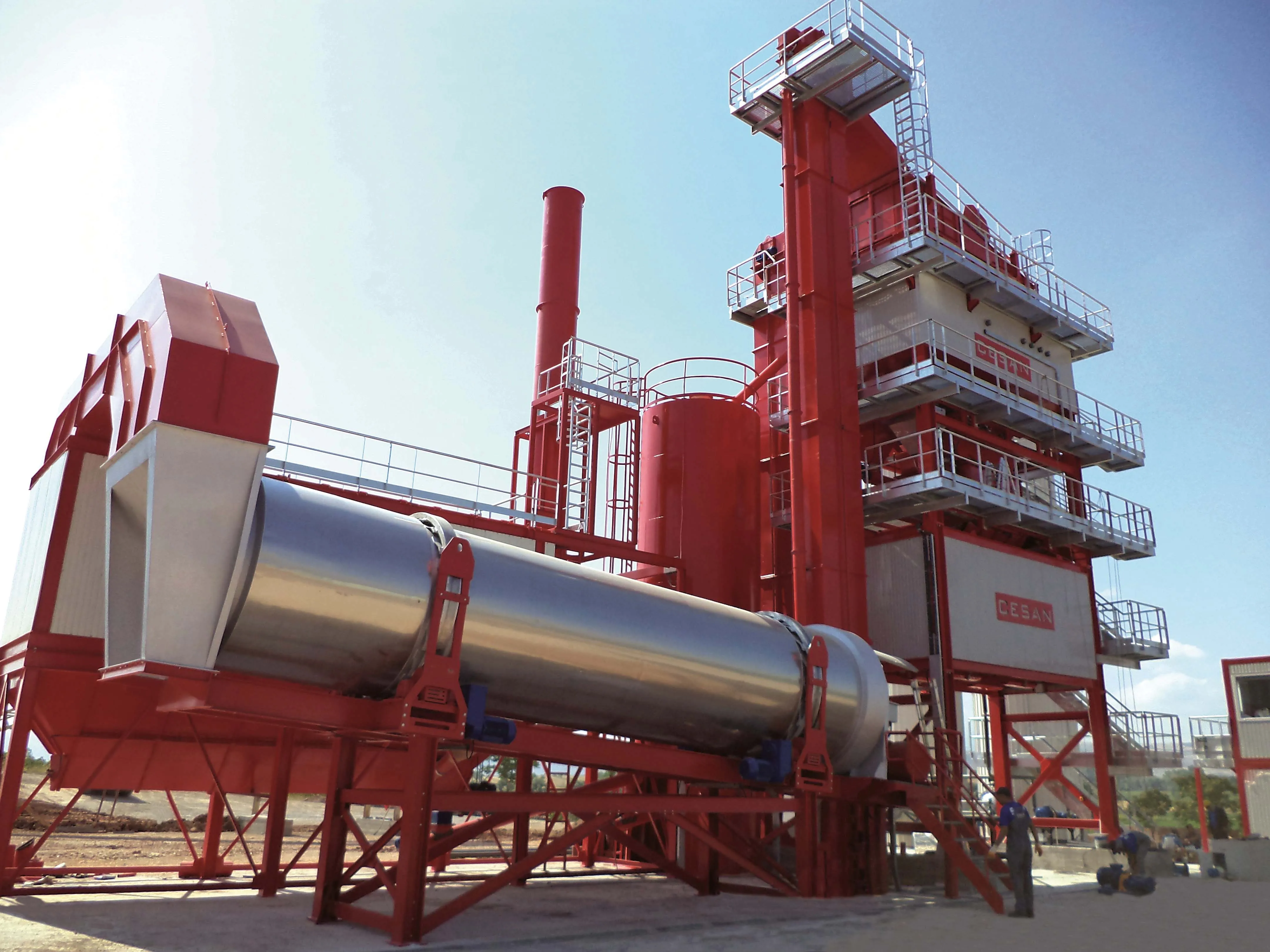
Made in the firm’s German factory, the new ECO plants can produce 100-320tonnes/hour of asphalt. The new plants are said to combine the latest innovations in asphalt production technology from
The modular design of the ECO series also allows various high-tech components to be integrated afterwards. In this way, asphalt producers can then also react to future customer and market requirements – particularly when it comes to solutions for asphalt recycling. The plant is supplied with an integrated mixed material loading silo, available with capacities of 10-325tonnes and this is said to ensure a sufficient buffer whilst also providing storage capacity for up to seven different asphalt types. Thanks to the modular system, this can be expanded or retrofitted at any time with one or two secondary towers.
Because all main ECO plant components are designed in ISO standard container dimensions, transport by lorry, ship or rail is said to be simplified. The advantages of the container design of ECO asphalt mixing plants is apparent during installation and commissioning, with both stages being completed in just five weeks. On conventional plants, four to six months can pass before the first vehicles carrying the asphaltic mixture leave for the construction site.
Meanwhile the firm’s TBA transportable asphalt mixing plants offer outputs of 160–320tonnes/hour and are suitable for semi-mobile and stationary use. The design of the main components in container format with plug-in wiring makes these plants easier to transport and also reduces set-up times. Modular in design, the plants offer versatility and are available with options, recycling feed systems and continuous retrofitting options.
Large storage capacities are claimed for the hot bin section and mixed material loading silo offer. The intermediate storage of the dried, heated and sorted virgin mineral is available in capacities of 60, 80 and 130tonnes in five, six or seven bins.
An integrated mixed material loading silo with capacities of 42-517tonnes offers a buffer while providing storage capacity for up to seven asphalt types. The modular system allows this to be expanded or retrofitted at any time.
The TBA 2000, 3000 and 4000 have a 2, 3 or 4tonne mixer and ensure mixing capacities of 160, 240 or 320tonnes/hour.









